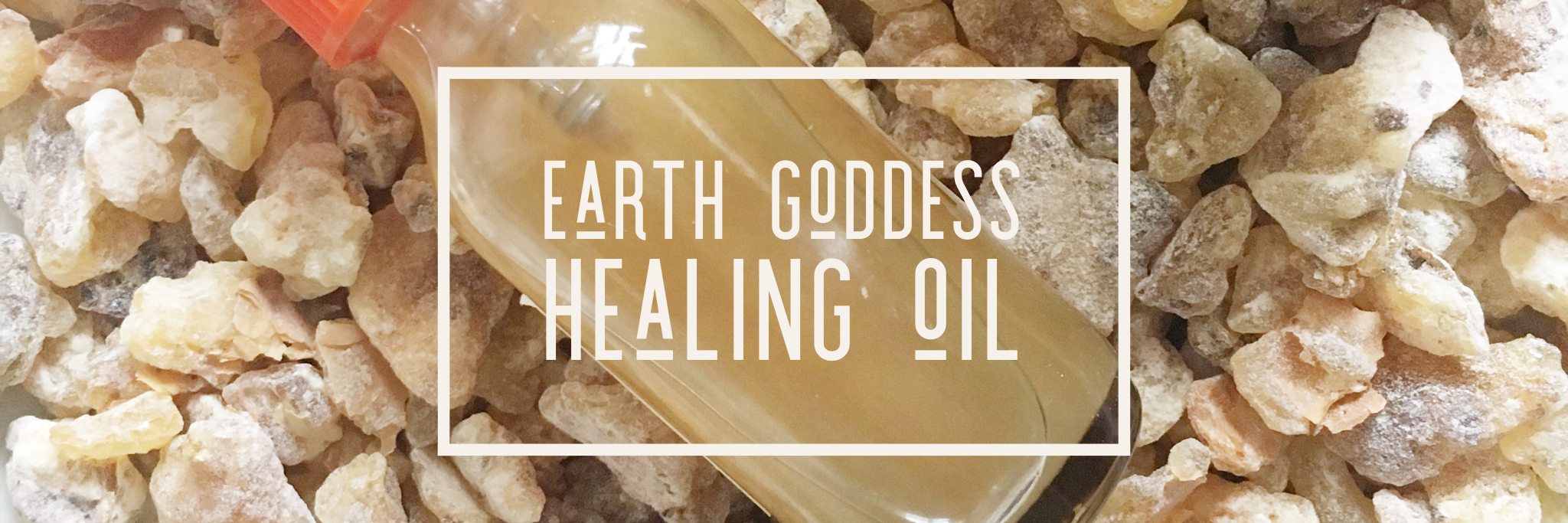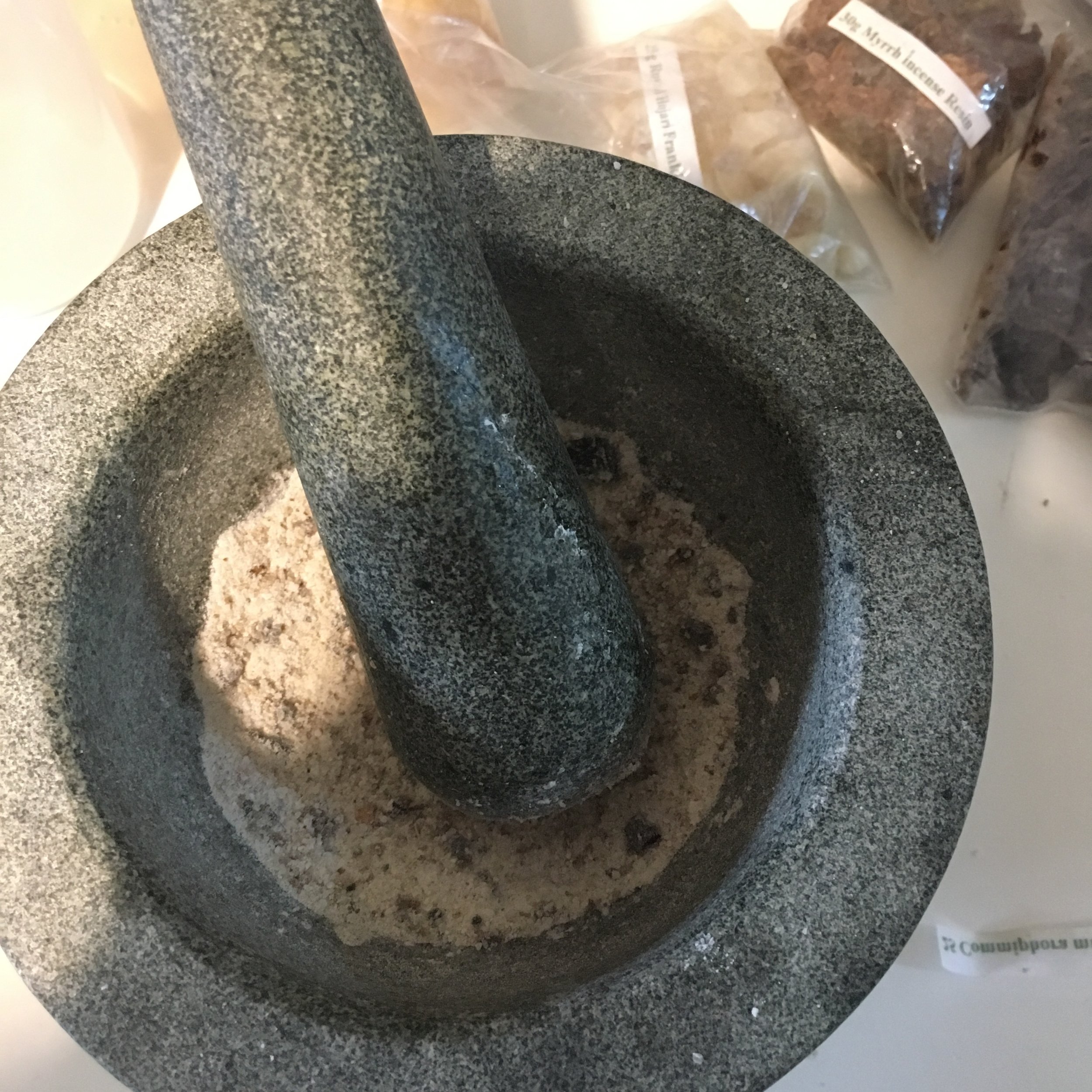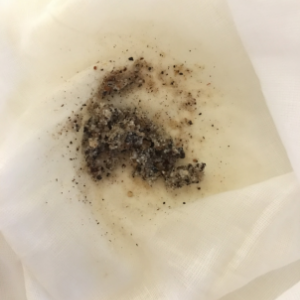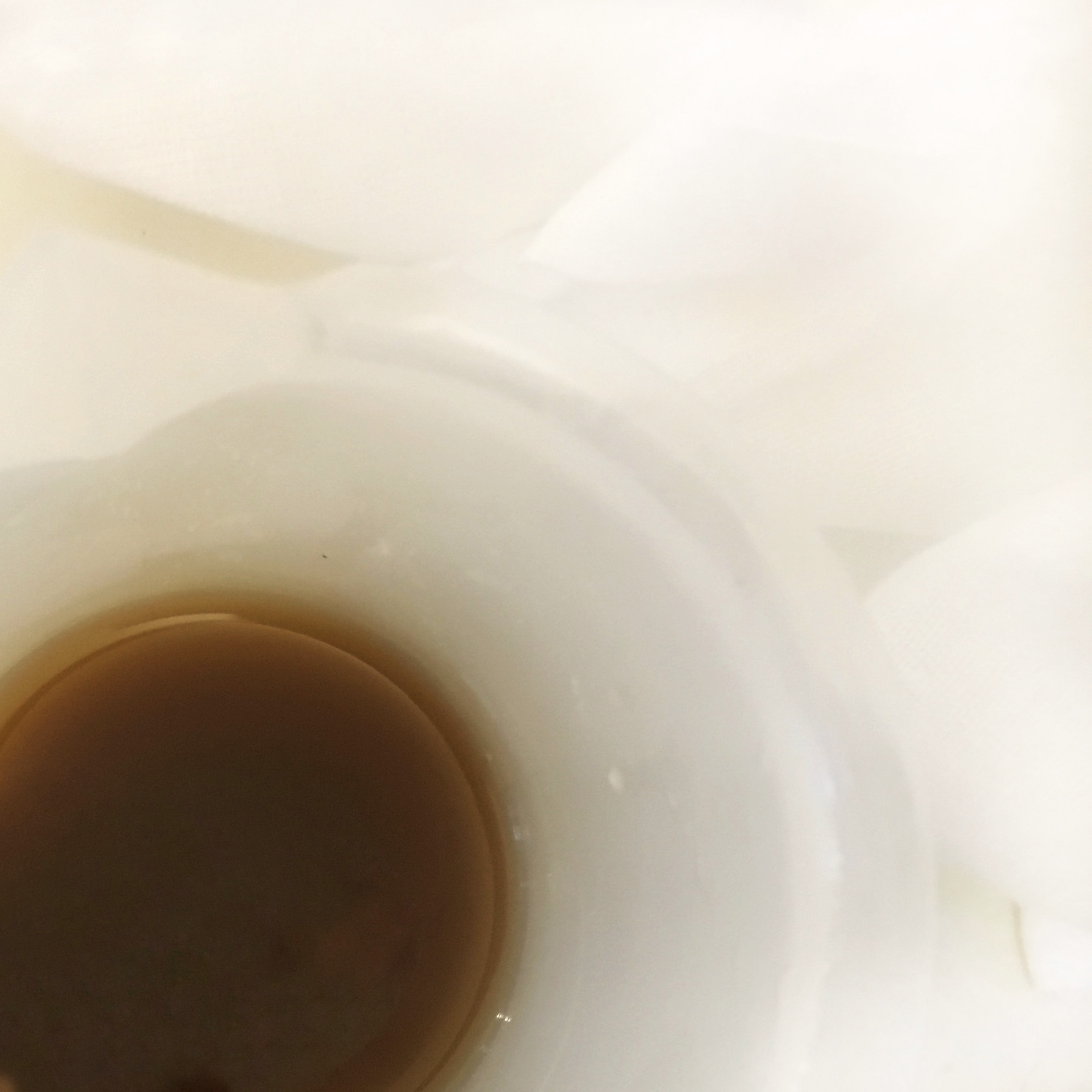Earth Goddess Healing Oil with Frankincense, Myrrh & Rose
I find resins fascinating, more so than any other plant material and I seem to have an affinity to frankincense and myrrh, I think this is probably something to do with my family often burning frankincense resin in our home. I also really like infusing resins, it's very easy to do and you get great results every time.
Oil infusions or macerations are a well known and ancient method of extraction. They involve steeping a botanical- be that the blossom, bark, root or resin - in an oil based solvent or menstruum. Over time this will draw out all of the oil soluble material from the medium. Oil maceration was one of the first means of essential oil extraction before distillation was invented, and before we used concentrated essential oils as we know them today. One aspect of using oil infusions is that you get a more rounded extract, one that allows for all or most of the plant oils to be extracted. This is particularly good in the case of frankincense where valuable but less volatile oils, like boswellic acid, would be left behind in the distillation process.
The extract took me about an hour in total as it involved heating the extracts in oil for 45 minutes. I used the quick method though there are other more lengthy ways to make an extract.
This super concentrated serum contains the oil extract of Royal Hojari frankincense and Indian Bdellium. After the extraction process I added a three drops of Rosa damascena essential oil.
Royal Hojari Frankincense
This is probably the most expensive frankincense you can find. It is translucent golden yellow, amber-green in colour. It's botanical name boswellia sacra or boswellia carterii and is native to Oman, Yemen and Somalia. It has a lemony, spicy scent and is often used in perfumery and aromatherapy. Frankincense has been used for millennia by the Abrahamic (Christians, Jews, Muslims) religions in spiritual practices and for meditation.
Frankincense sacra/carterii has high levels of boswellic acids. Boswellic acids are 'heavy' terpenes that are thought to have anti-cancer and anti-inflammatory effects. It is thought to fade scars, help with wound healing and to treat acne. However, boswellic acids can not be extracted during distillation due to their low volatility.
Indian Bdellium (Commiphora Mukul)
Myrrh is a type of gum resin that comes from the Commiphora tree. It is widely believed to be a powerful antiseptic and as a result is often used in mouthwashes and toothpastes to treat gum problems. In herbal medicine it is claimed to be a remedy for indigestion, colds, ulcers, lung problems, arthritis and cancer.
Mukul is a species of myrrh rich in guggulsterones, phytosterols thought to have anti-inflammatory and antioxidant activity. Studies have found that it increases collagen production as well as inhibiting elastase, the enzyme that breaks down proteins in the skin. Due to this it is thought to be a promising anti-wrinkle ingredient. Some studies have suggested it may have some anti-cancer effects in mice.
Rose damascena Essential Oil
Rose is used extensively in aromatherapy as it is thought to be helpful for depression and for beautifying the skin. due to its chemical makeup it is thought to be anti-bacterial and helpful for treating acne. Anecdotally it is great for promoting a youthful complexion, evening out skin tone and promoting elasticity (Dweck, 2012)
Fractionated Coconut
For the solvent I used caprylic/capric triglyceride as it is a light oil with a ridiculously long shelf life. It is not particularly heat sensitive. If you want, you can use stable plant oil such as jojoba, meadowfoam seed oil or moringa oil. Some people like to use virgin olive oil. You can use a combination of oils or even combine with a small amount of butters; as long as you can keep the oil fluid at room temperature, it shouldn't be a problem.
What you will need:
a glass jar with a lid
scales
spoons
pan for boiling water
coffee filter or cheesecloth
rose absolute
frankincense
myrrh
fractionated coconut or any long-shelf-life oil
Ingredients:
Ingredient INCI Grams % Fractionated Coconut Caprylic/Capric Triglycerides 80 88.40 Myrrh Guggul Commiphora mukul 5 5.5 Hojari Frankincense Boswellia carterii/sacra 5 5.5 Rose absolute Rosa damascena 3 drops 0.6
Process for Making the Oil Infusion of Frankincense and Myrrh
Grind the frankincense and myrrh in a pestle and mortar. Some people find that freezing the resins for 24 hours makes is much easier to grind as the resin can be quite sticky. I didn't on this occasion and you can see the larger specs of myrrh as a result.
Place the ground resin in a heat proof bowl and then place in a water bath.
Allow to steep in boiling water for 45 minutes to an hour.
Remove from heat and leave to cool. Let to rest for a further 24 hours for the sediment to settle. This will make filtering easier.
Strain with a coffee filter or cheese cloth, I used the latter. You can help the filtering process along by gently stirring and pushing the oil though your filter but you can always just leave it and come back to it after an hour. You can filter again, however I have noticed that you will still get some solid matter sinking to the bottom even after filtering.
Add your Rose essential oil and stir so that everything is combined; decant into a clean bottle or jar.
Although I infused both frankincense and myrrh, you can use this method with a single resin. From my research you can use a ratio of between 1:2 - 1:8 resin to oil depending on the strength you want the extract, but really there isn't a hard and fast rule.
Use your infusion anywhere and everywhere. The scent is strong despite only being a quick infusion. You can even add it to creams or dilute into face and body oils to add a fresh lemony and resinous note to your product without additional essential oils.
I must say, I love this oil, it is a slightly viscous, milky mustardy colour and smells absolutely glorious - with an earthy lemon and a light floral note from the rose. Since making it I have used it every day in the hope that it will help fade some scaring I have on my arms and sometimes I have massaged some onto my face, just because I find the scent so uplifting.





